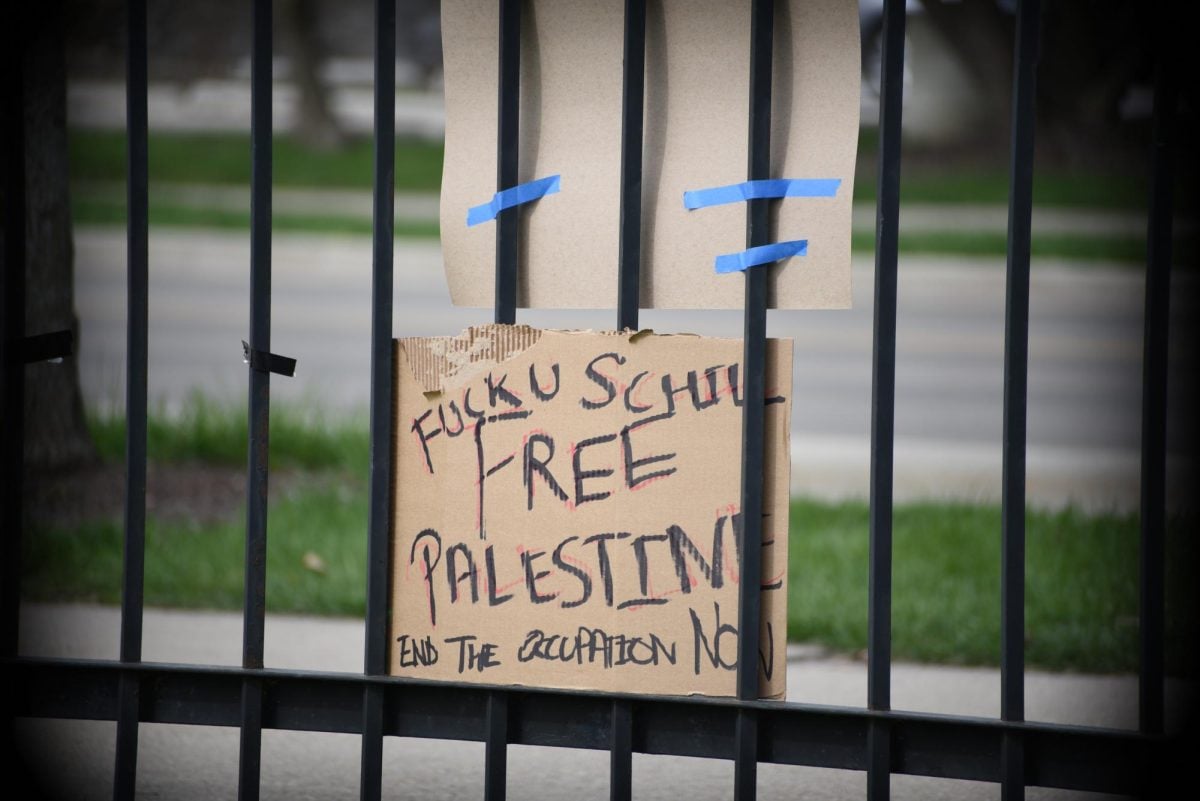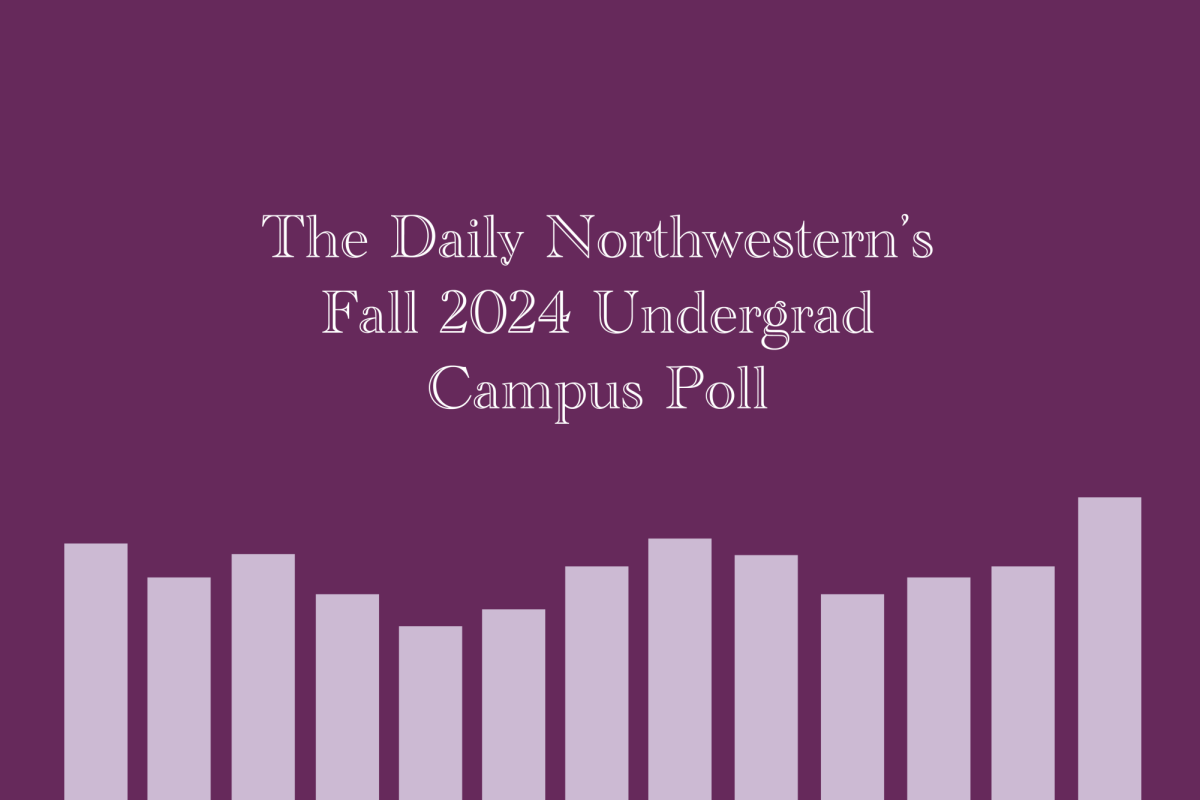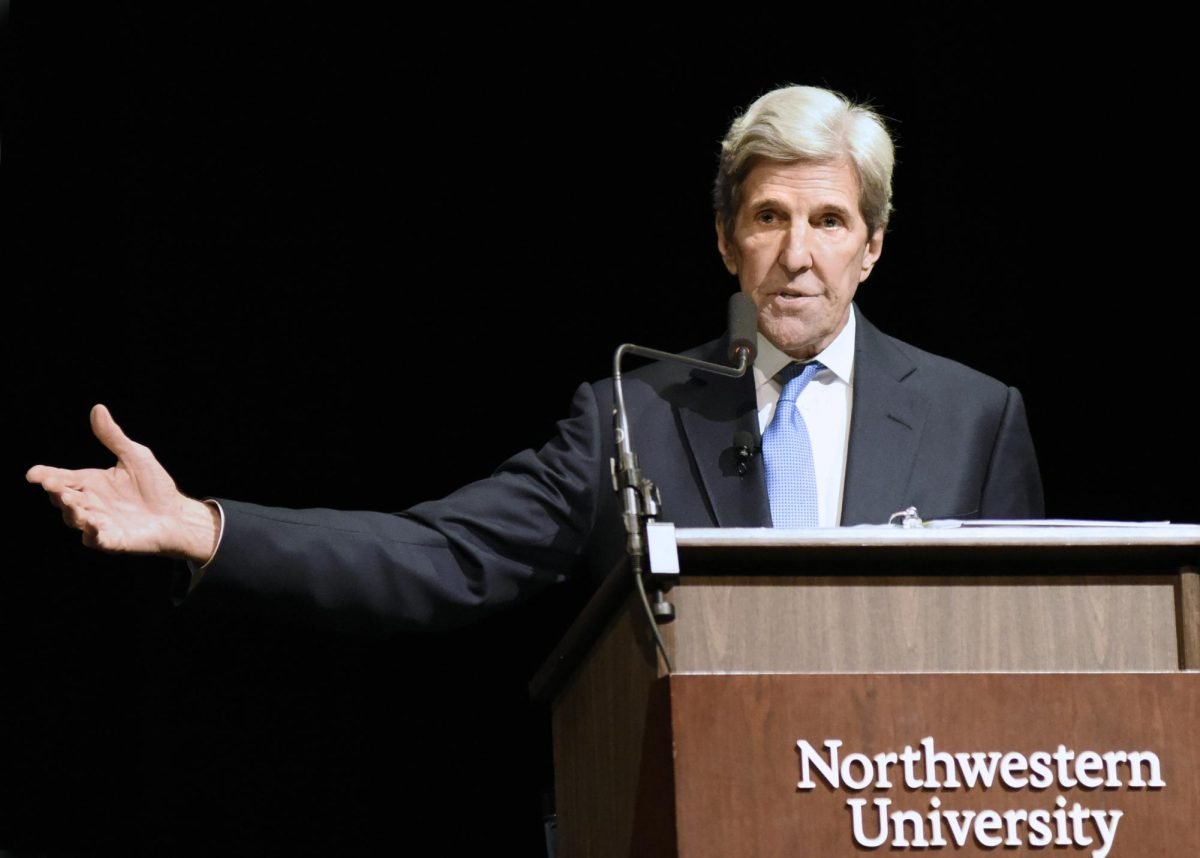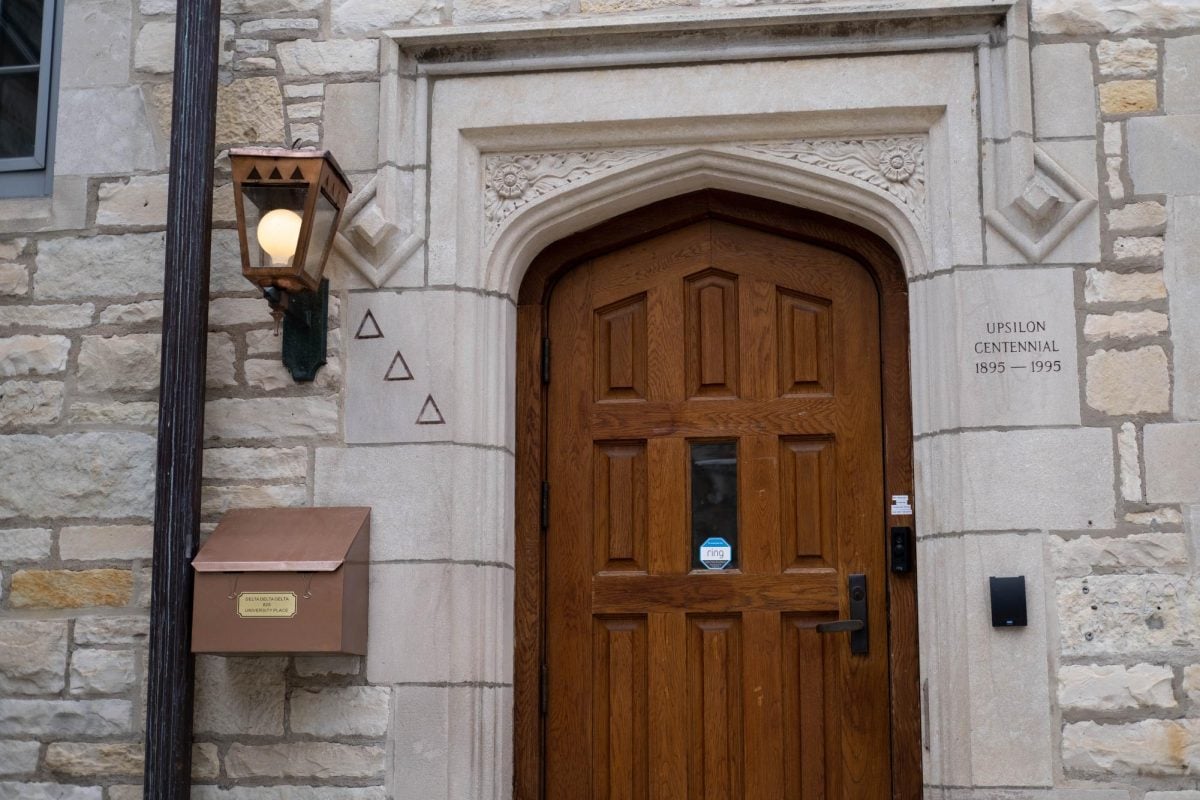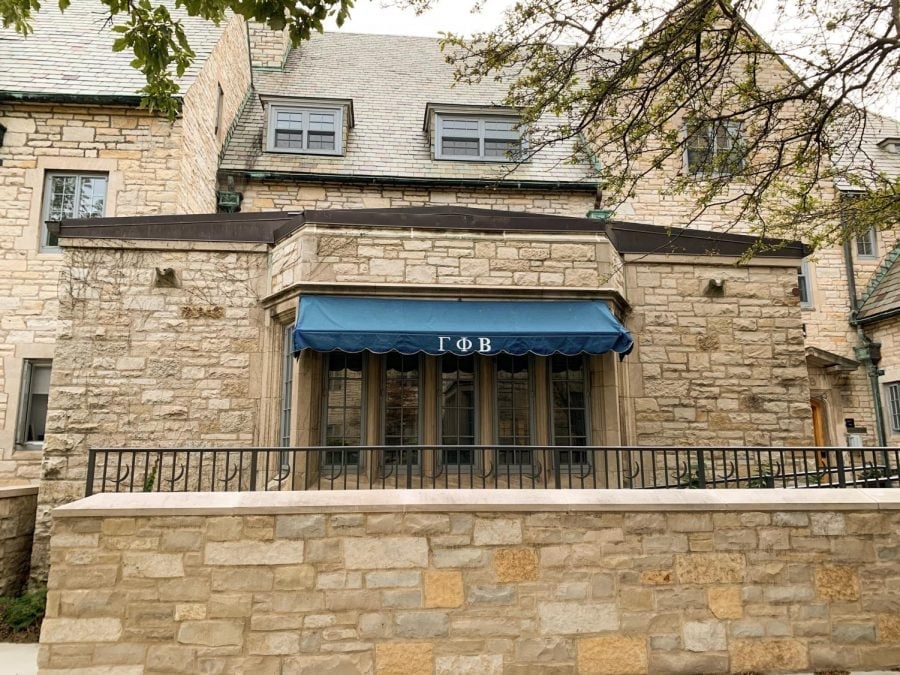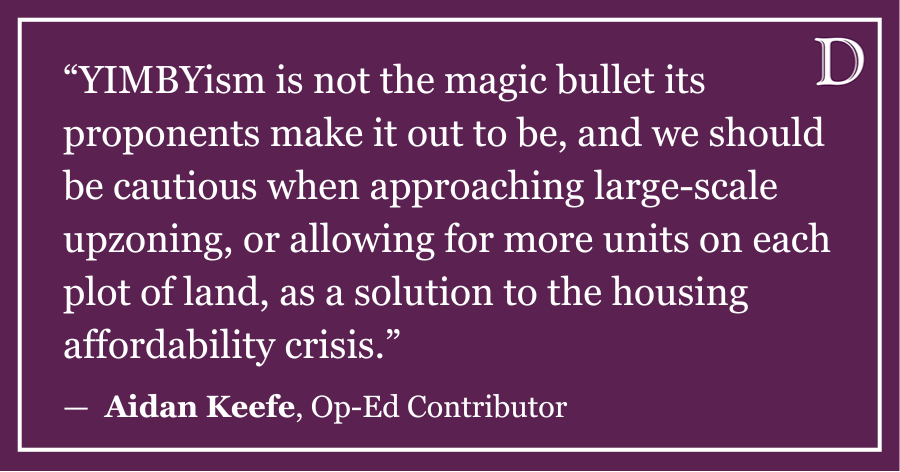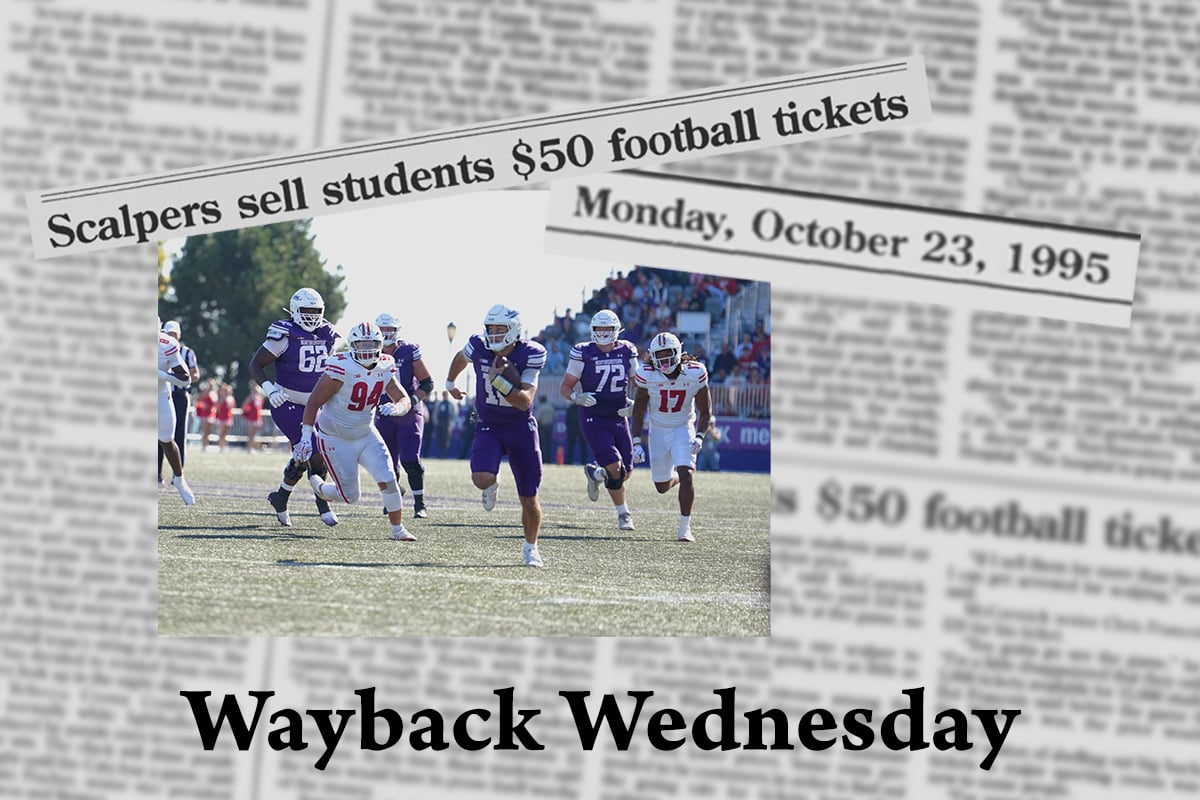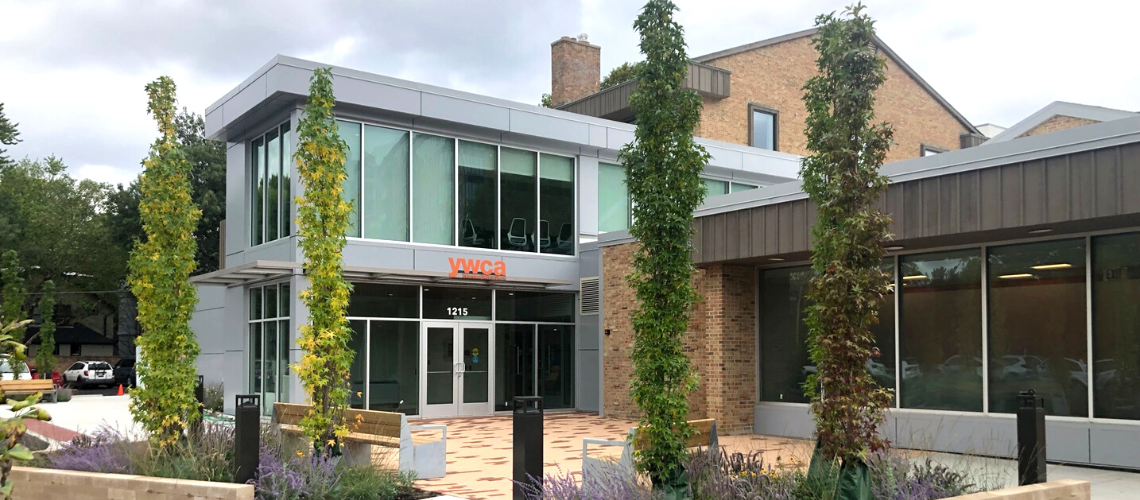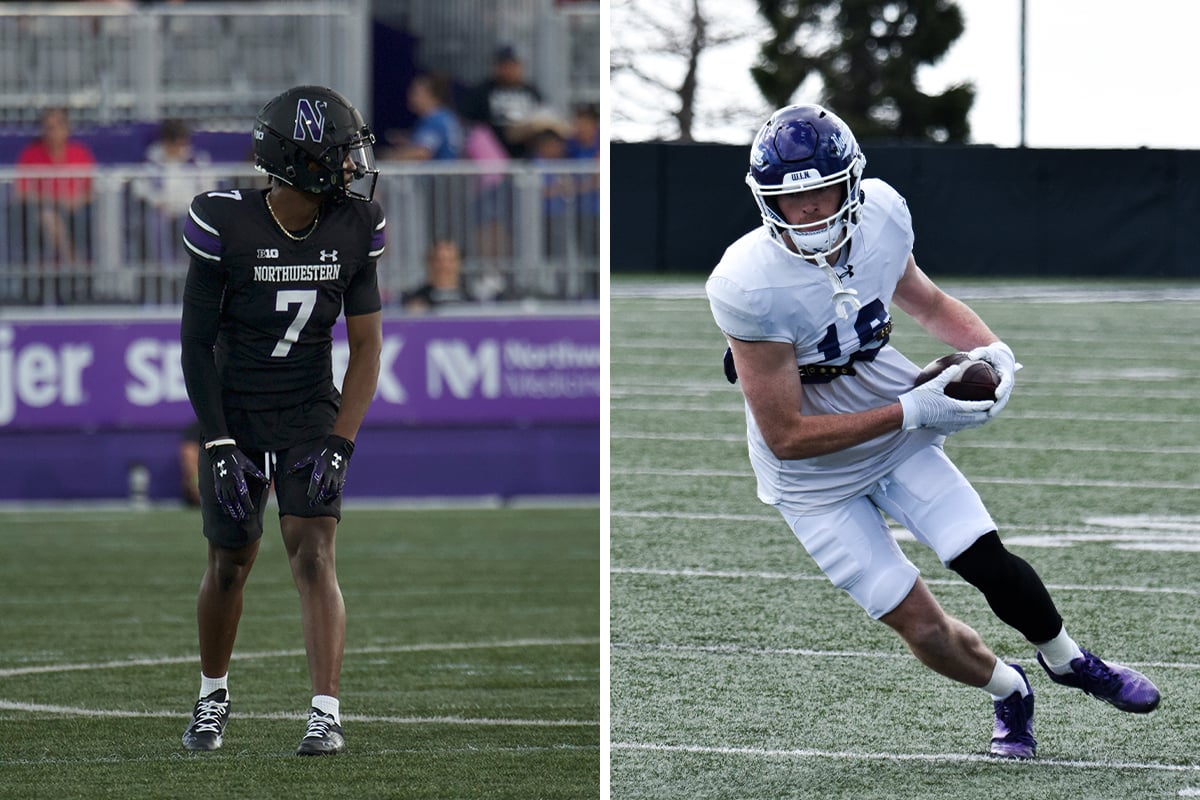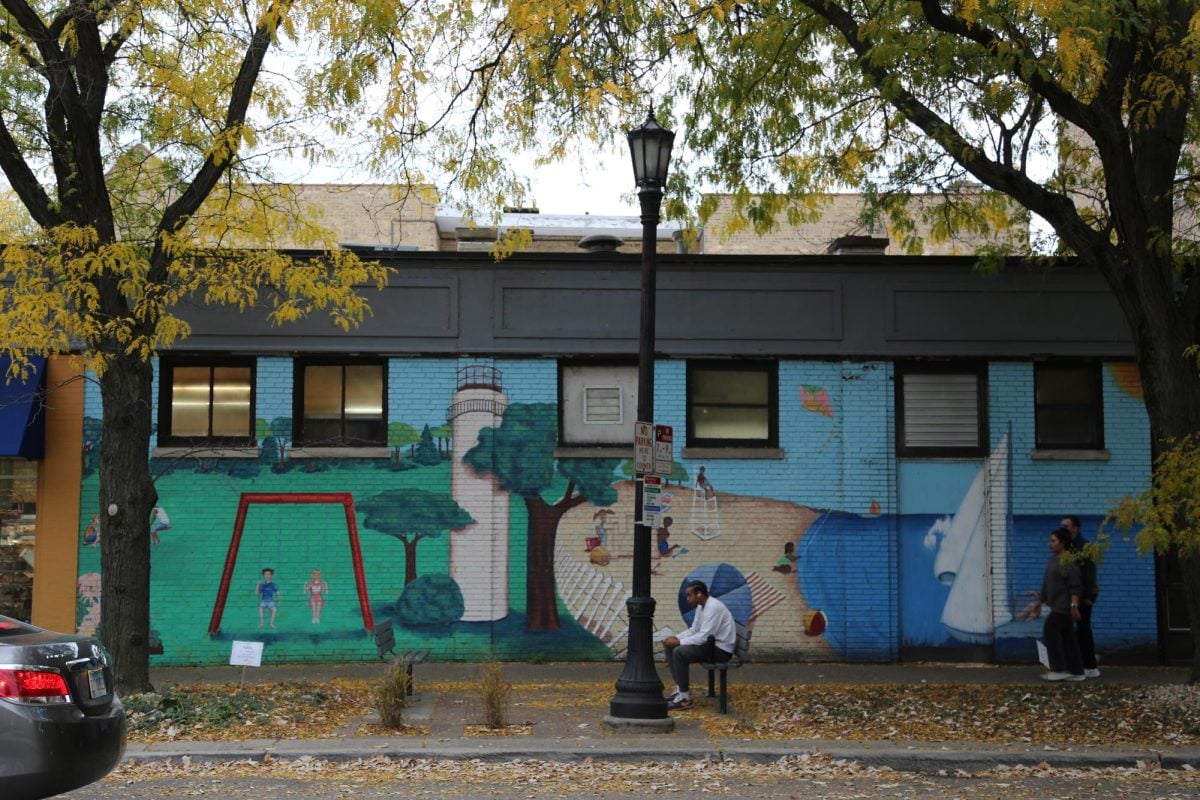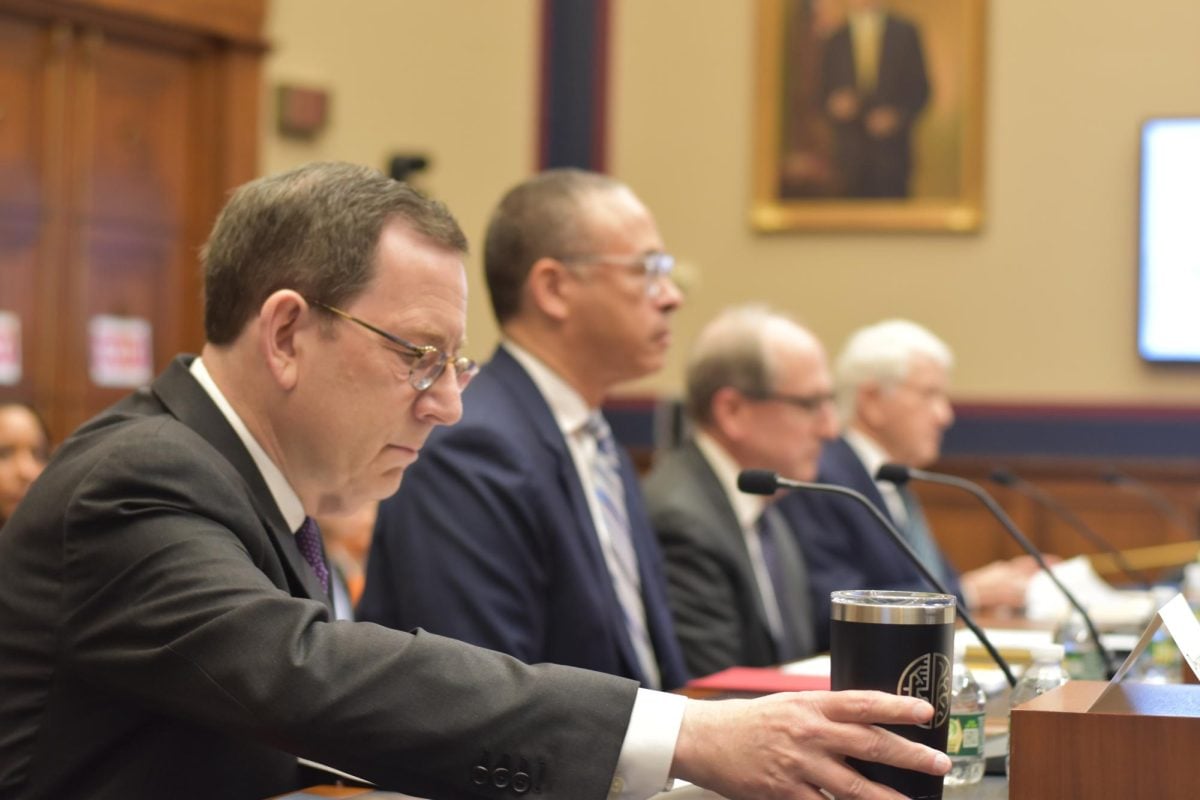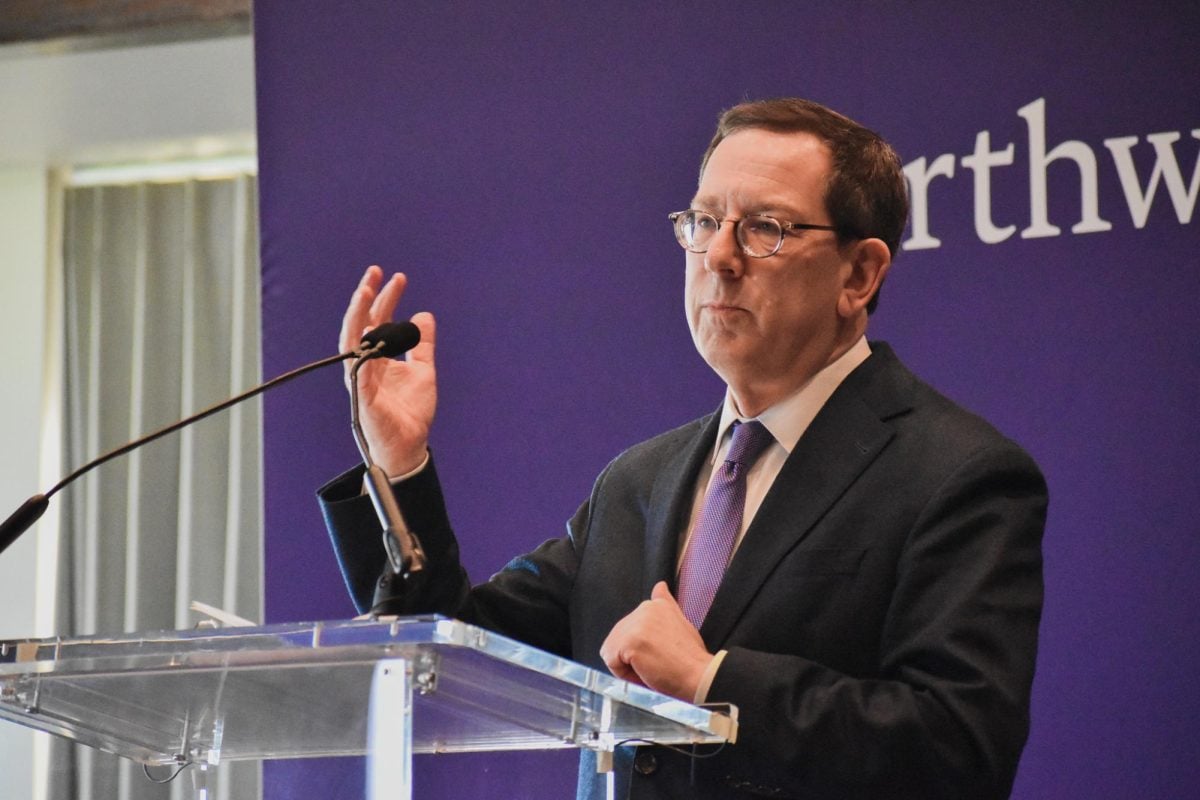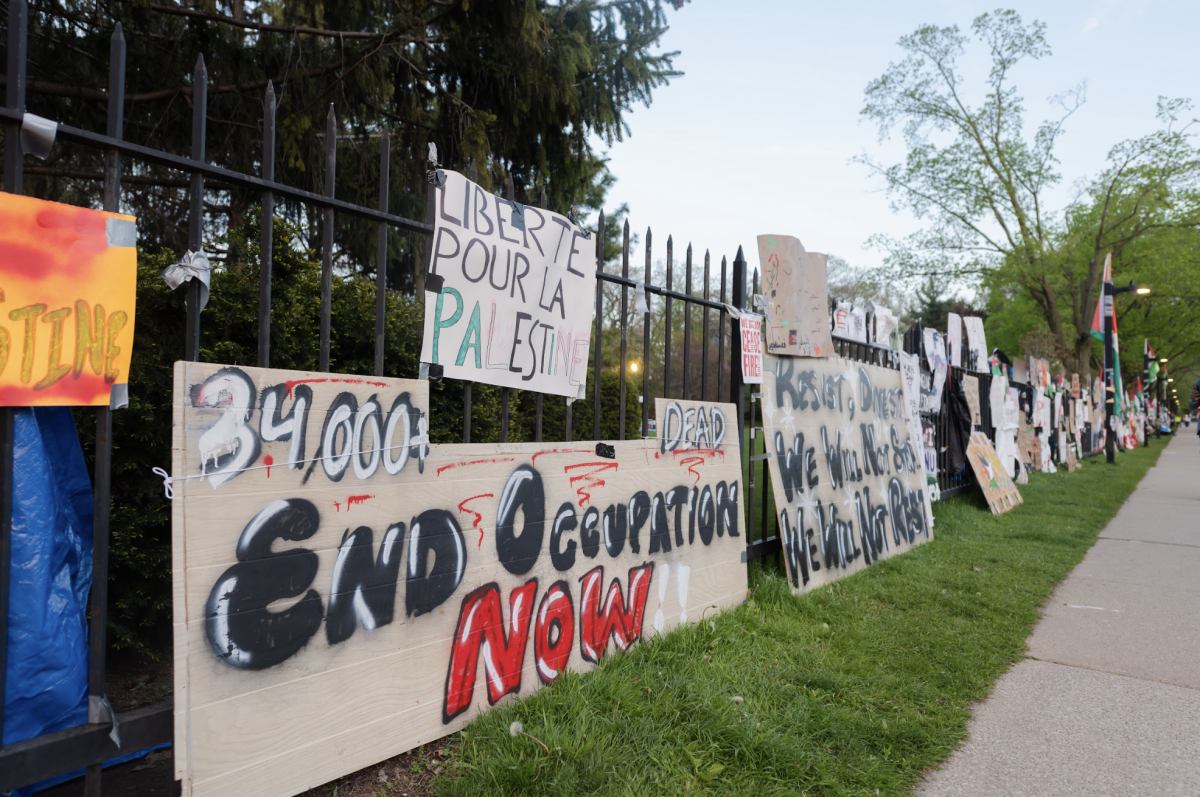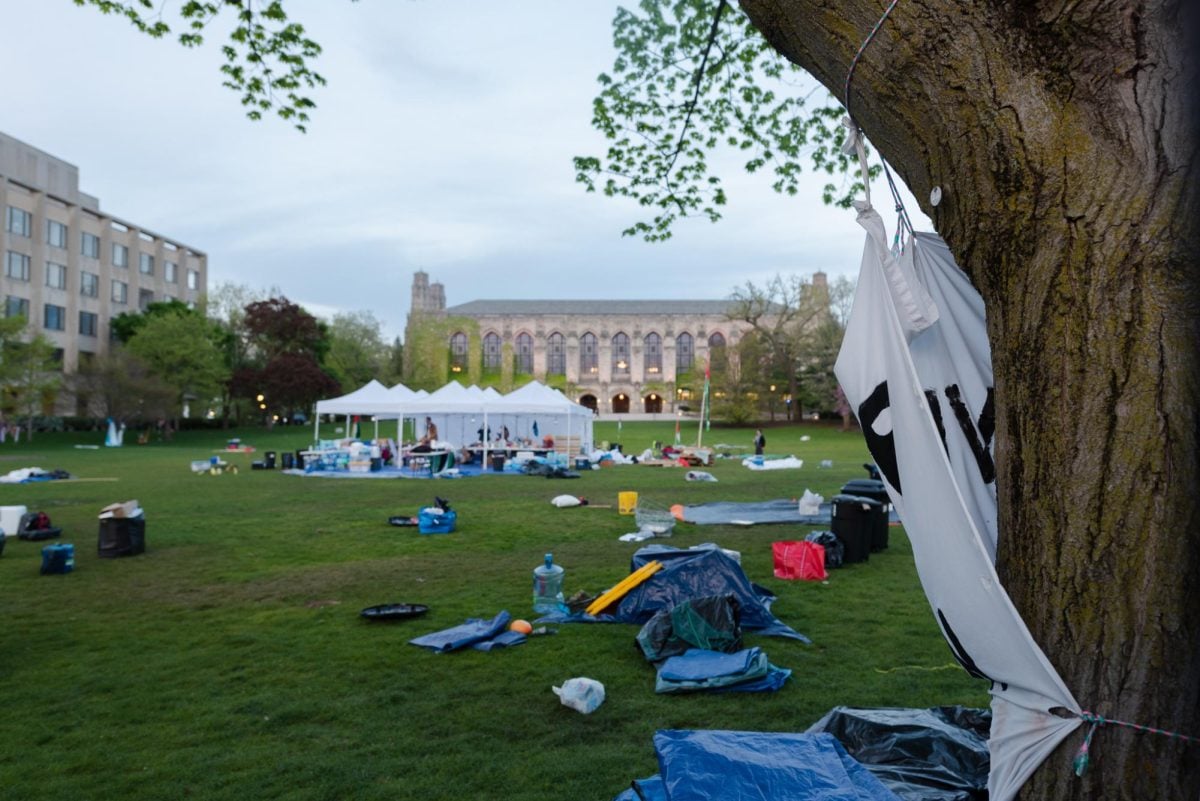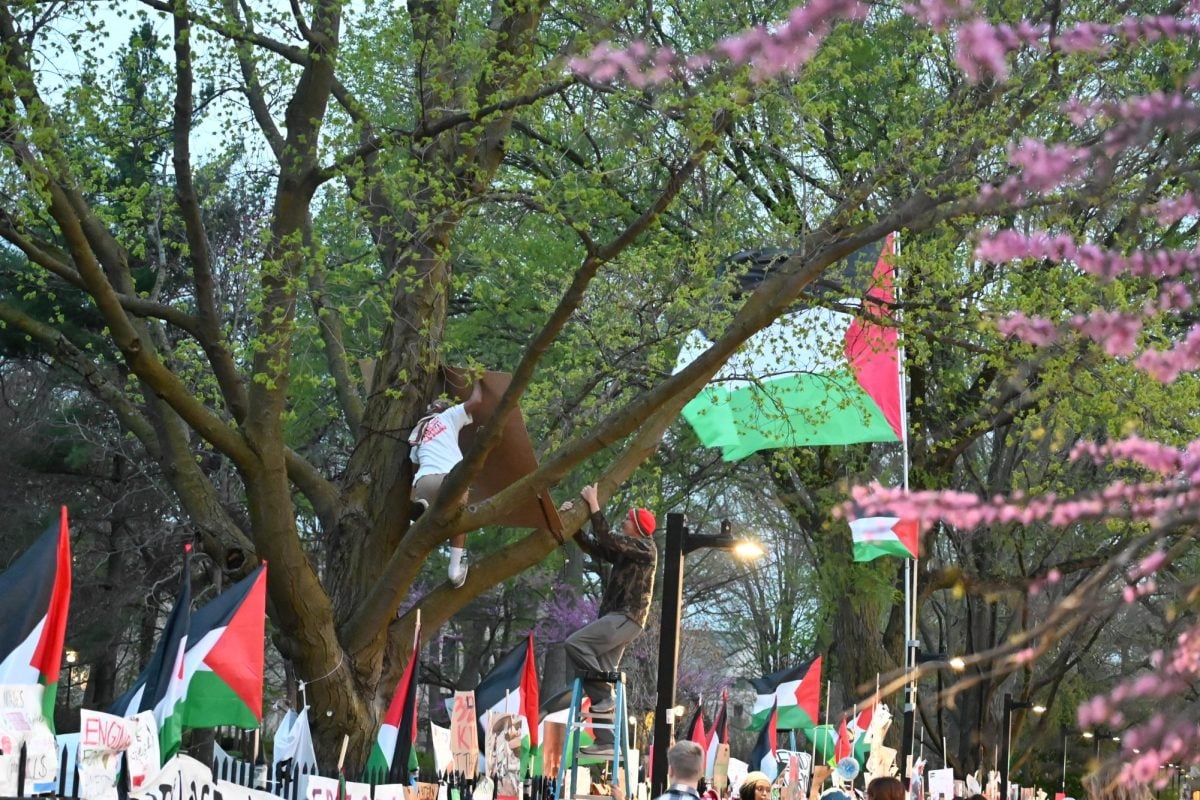Shortly after pro-Palestinian demonstrators set up an encampment on Deering Meadow Thursday morning, Northwestern enacted an interim addendum to its demonstration policy.
In an email, University President Michael Schill told the NU community the addendum’s goal was to “balance the right to peacefully demonstrate with our goal to protect our community,” adding “temporary changes” to protest provisions.
Under the addendum, demonstrations at The Rock may not occur until after 3 p.m. Installation of tents, the lighting of University buildings, and attaching flyers and postings to trees, benches, campus buildings’ painted exteriors and campus sideways are all prohibited, among other provisions.
The interim changes come as debates about free speech heighten on college campuses across the country with students organizing demonstrations and encampments in support of Palestine and in opposition to universities’ financial ties to Israel.
Previous demonstrations at NU hosted by groups like Students for Justice in Palestine included the lighting of Deering Library and writing on sidewalks and the steps of University buildings.
“In Evanston, we have seen peaceful protests that have interfered with classes in nearby buildings, as well as chalkings, flyers, banners and chants that many have found hateful, intimidating, offensive and difficult to avoid,” Schill wrote in an email announcing the change.
A professed commitment to free speech has been central to Schill’s tenure at NU. He announced an Advisory Committee on Free Expression and Institutional Speech in February and repeatedly reiterated his free-speech values in interviews with The Daily.
Free speech was central to Schill’s philosophy while at the University of Oregon, as well.
Schill addresses University of Oregon protesters
In 2017, Schill penned an editorial in The New York Times stressing the importance of free speech after a group of UO student protesters blocked him from delivering a state-of-the-university speech as president.
The group protested rising tuition and the perceived corporatization of public higher education, Schill said in the op-ed. While he wrote he had nothing against protest, Schill, then president at UO, said he did object to their “tactic of silencing.”
Schill argued the group’s protest limited discourse by blocking his speech, something he described as “ironic” for a group opposing fascism.
Later, according to the publication Inside Higher Ed, Schill and other administrators invited the group to a conversation in exchange for immunity from punishment. If students didn’t accept the offer, they could be in breach of the student code of conduct and face sanctions, according to an email sent by an administrator at the time, as reported by Inside Higher Ed.
At the time, the protester collective called the meeting “coercion.”
“If they want to talk, they could reach out and talk to us without requiring we plead guilty,” the group said in a statement at the time.
Schill addresses alleged harassment by UO faculty
That same year, Schill sent a message to the UO community after a professor dressed in blackface invited two classes to her home for a Halloween party. In the statement, Schill wrote that the professor’s actions represented a “conundrum” — the stuff of a “very difficult law school examination question.” But once again, he centered free expression.
“Two very important principles were potentially in conflict — the right of students to be free from racial harassment and the right of faculty members to exercise free speech,” he wrote.
While Schill acknowledged students were deeply offended and affronted by the professor’s costume and its “strong connotations of racism,” he said he was “torn” on the issue. He once again reiterated his belief in freedom of speech as the core value of any university.
Schill said in the message he believed there are cases in which speech or conduct should be limited in cases of great harm.
“Imagine a required class in which a professor repeatedly uses the ‘N’ word for no apparent reason except to elicit a reaction. Could African American students forced to sit through this class have a claim of harassment? I think so,” he wrote. “Similarly, imagine a class in which a professor makes repeated, sexually explicit remarks to a student or students for no educational purpose.”
But, Schill said, free speech should be “maximally protected.” This professor dressed in blackface in her own home, to which she invited students. She told investigators she didn’t intend to act in a racist manner, according to Schill’s letter.
“While I have tossed and turned for nights over the fact that the university found that a professor’s expressive conduct constituted harassment, I think the reaction of those commentators is overly dramatic and not supported by anything that took place in this case,” Schill wrote in his message.
He said he does not believe in speech that constitutes harassment, he said freedom of speech is essential at a University.
“Without academic freedom we could scarcely call the UO a university,” he wrote.
Schill chimes in on free speech debate at NU
In 2022, after a student published an op-ed in The Daily arguing the phrase “From the River to the Sea” was hateful and had its origins in antisemitism, a large display appeared on the fence near Deering Meadow with the phrase written over 42 copies of the opinion piece.
Groups around campus engaged in fierce debate about the action, with some calling it an example of antisemitism and others arguing the phrase is a call for Palestinian liberation.
At the time, Schill said he did not want to make a judgment about whether “From the River to the Sea” is antisemitic. Instead, he chose to reiterate the importance of free speech.
“A university is built upon the idea that people should be free to express their views on both academic and political matters without fear of retribution,” Schill wrote in a Nov. 18, 2022, message to the community. “It is only through reasoned debate that we have a chance to develop understanding and pursue knowledge and truth.”
Later, when the militant group Hamas launched an attack on Israel on Oct. 7, 2023, Schill said he would not release a statement communicating a University position.
While he said he was sickened and repulsed by Hamas’ actions, Schill said he did not want to impose on faculty, students and staff who might have their own beliefs.
“We are a University which celebrates free expression, diversity of people and diversity of viewpoints,” he wrote. “This is essential to our role in society”
Schill once again communicated his commitment to the “Chicago Principles,” a set of guiding principles for freedom of speech created at UChicago.
“This reticence to speak out publicly as President Michael Schill will sometimes please and often infuriate members of our community,” he said in the message. “But I believe it is the right approach.”
Schill reiterated his commitment to free speech while also encouraging respectful language in two additional emails sent out in October.
On Nov. 13, 2023, Schill sent another message to the community announcing an Advisory Committee on Preventing Antisemitism and Hate. He called upon all community members to “emphatically reject statements or banners that significant parts of our community interpret as promoting murder and genocide,” singling out flags associated with Hamas and banners with the slogan “From the River to the Sea” as example of such rhetoric and imagery.
While Schill said the University is committed to free expression, he notably took a stance on an instance he’d previously referred to as an issue of free speech. While he had written “The truth no doubt depends upon the intent and perspective of the people who propagate the slogan and those who hear it,” he now condemned “From the River to the Sea.”
Schill emphasizes dedication to “core value of free speech”
In a March interview with The Daily, Schill emphasized his dedication to free speech.
“We need to adhere to our core value of free speech and free expression,” Schill said. “As a president and a university, we should always have our values in mind. And our actions should come out of those values.”
Schill said the year’s events have encouraged him to consider the balance between freedom of expression and Northwestern’s values.
Still, some have raised concerns that Schill’s interim addendum — released hours after students began setting up an encampment on Deering Meadow — may stifle freedom of expression and demonstration on campus.
In a letter obtained by The Daily, the NU chapter of the American Association of University Professors’ executive committee called the provision a “dramatic escalation in repression of speech and the academic environment.”
“We condemn the egregious infractions of norms of academic freedom and shared governance that Northwestern’s administration has recently enacted,” the authors wrote.
On the other hand, some students were supportive. In an email to its listserv Thursday, Northwestern Hillel wrote that it is working with “campus partners” to ensure the guidelines in the addendum are being followed.
“We are grateful for the University’s commitment to ensuring that Northwestern remains a safe campus for all students,” the email said.
In his Thursday email, Schill also said University Police and personnel had issued citations and removed the tents the demonstrators set up Thursday morning, but University spokesperson Jon Yates later told The Daily no citations had been issued.
As of Monday morning, several dozen tents remained on Deering Meadow, and hundreds of posters lined the fence along the west side of the meadow along Sheridan Road.
“He said we’ve left. He said we’ve put our tents down. Is that true?” an organizer said to a crowd gathered at NU’s encampment Thursday. Protesters replied “no” en masse.
Related Stories:
— Live: Pro-Palestine encampment remains on Deering Meadow
— Divestment demonstrators, counterprotesters stand off on Deering Meadow
— In Focus: A trail of athletics scandals follows NU President Michael Schill
